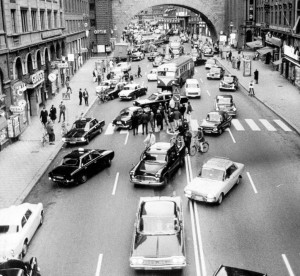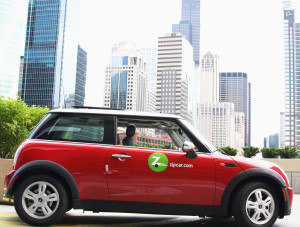
Car-sharing is growing, led by companies like Turo.
Cars were once seen as a symbol of freedom. But as real estate prices rise, and millennials face student loan burdens, some see them as a burden. Their owners are saddled with a costly, often unused piece of machinery, not really necessary for everyday life.
In comes collaborative car consumption, which addresses the profound cultural shift in how transportation is viewed.
Collaborative car consumption, also known as car-sharing, takes many forms and has been the cornerstone of many recent car-based start-ups, from well-known Hertz to lesser-known Turo. Collaborative consumption is the shared use of a good or service, and in this case, that good is a car.
Ride-sharing services, such as Uber or Lyft, don’t necessarily fit the definition of collaborative consumption. These services still have a single person driving, or owning, the car, and they are generally booked from point A to point B (although Lyft’s new “add a stop” service could change that.)
Collaborative car consumption models
There are three types of collaborative consumption, according to Future of Car Sharing, which tracks the model. They are peer to peer, where individual car owners rent their cars; business to consumer, where a business owns the cars and facilitates their use to members; and not-for-profit, where a community group owns cars and facilitates their use.
Peer to peer companies include Turo and Getaround. Through Turo, a car-owner lists their car on the company’s database as available for rent, according to the Turo website. From there, anyone who needs a car can rent one, meeting up with the owner at a specified location.
In New York City, cars listed on Turo can be rented from $40 per day to more than $250 per day.
Peer to peer car-sharing companies have found it difficult to be successful. One such company was WhipCar, a British start up which was founded in 2009 but shut down in 2013. On its now deactivated website, the company says, “there are still barriers to widespread adoption of peer-to-peer car rental in the UK.”
The business to consumer model is includes companies such as Hertz, Enterprise and Zipcar. These companies own the fleet of cars they rent to consumers and are the most popular form of collaborative consumption.
Not-for-profit collaborative car consumption companies prioritize car-sharing with the goal of changing driving habits over profit. Many cities across the country have programs that allow users to rent cars from the city owned program, often by the hour.
Programs include eGo CarShare in Boulder, Colorado, City Car Share in San Francisco, California, and Ithaca Carshare in Ithaca, New York. Continue reading






